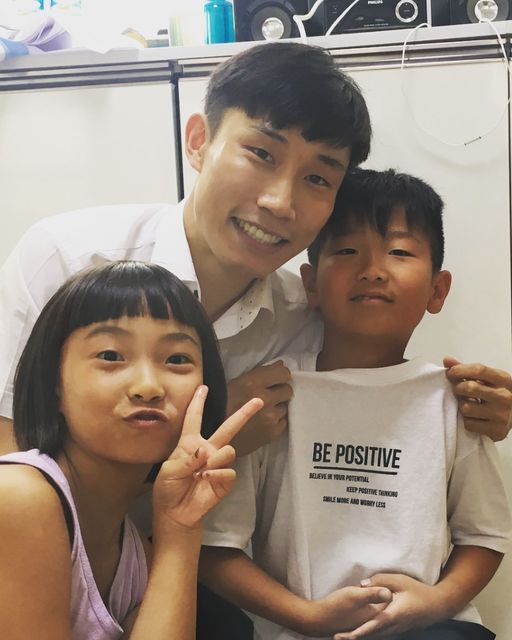Bruce Junhaeng Lee

Even with years of intensive English education in Korea, I was very surprised to find myself unable to speak English fluently when I first traveled to the United States in 2010. I decided to come back and spent a year at the University of California, Davis as an exchange student in 2013. After I returned to Korea, I was shocked to run into a six-year old boy who spoke flawless English in one of the most coveted neighborhoods in Seoul. He had been learning English since he was two at a posh English-only daycare where all the teachers were Americans. I realized that social class was playing a definite role in widening the English proficiency gap between children. As odd as it may seem in a country where English is not an official language, English proficiency is directly correlated with the possibility of attending a better college and landing a better job. English education is where parents invest the majority of their capital for their children – even middle-class families often send their children to English kindergartens that cost $2,000 a month, as well as to summer camps in Canada or the United States. Children from low-income families are excluded from this nationwide craze, only to lose their confidence, not only in English, but also in their academic accomplishments and life path.
Upon realizing this, I became motivated to mitigate the problem I defined as the “English Divide,” the English proficiency gap between social classes. So, in addition to working as a Project Management Engineer at Hyundai Motors full-time, I founded Beyond the English Divide in 2017, a registered nonprofit organization. Beyond the English Divide aims to help underprivileged children find opportunities to learn English from foreign teachers, as well as narrow the dividing gap in social classes. Fast forward three years, it has delivered free, quality English education to over 200 underprivileged children.
Why Fuqua
At Fuqua, I plan to acquire knowledge on various disciplines of business from renowned faculty members and find answers for creating sustainable monetization strategies. Additionally, the Fuqua on Board program and Fuqua Client Consulting Practicum (FCCP) will allow me to grow into a stronger leader and will help me expand services and stable profits to be reinvested in my social enterprise. The Center for the Advancement of Social Entrepreneurship (CASE), along with the Net Impact Club, has been a frontier of change in the field of social entrepreneurship and boasts a strong network of alumni committed to the field. I plan to connect with CASE alumni in social entrepreneurship and nonprofits to discuss how Beyond the English Divide could deliver impact for more people.
Furthermore, I desire to equip myself with strong leadership at Fuqua. Recruiting and motivating more than 300 foreign volunteers to my social enterprise to date was by no means an easy task. I had to address conflicts rising from the cultural differences between them and keep them committed to invest every Saturday without any compensation. At Fuqua, I aspire to attain the attributes of a leader who motivates and supports followers with a strong vision. I believe the experiences shared by Team Fuqua would provide more specific ideas on how to motivate others with purpose.
Last but not least, I desire to immerse myself and deepen my understanding of diversity at Fuqua – a mindset that drives different people towards a common goal. In Beyond the English Divide, I work with 70+ teachers from more than 20 countries, from South Africa to Kyrgyzstan. For someone born and raised in homogenous Korean society, it has been challenging to mediate between different perspectives and cultural backgrounds. At Fuqua, where the Team Fuqua spirits prevails, I want to learn how to embrace diverse voices and transform them into a powerful drive for a better future.
What impact do you hope your Fuqua education will allow you to have on the world?
My immediate post MBA career goal is in technology and the auto industry because I have a strong passion for creating autonomous cars that are cheaper and safer so that they deliver greater value to more people. However, my long-term goal is in social impact. I envision myself becoming a social entrepreneur, who integrates divided society by upholding the equality of opportunity and narrowing the gap between classes in English education. Through managing Beyond the English Divide as a nonprofit, I learned about the clear advantages of social enterprises in creating far-reaching impact. I firmly believe that, by creating it into a social enterprise with a sustainable business model, Beyond the English Divide can boost its size and hire talented individuals who share my passion for equal opportunity of education. In the long run, I desire to reach other countries, such as Myanmar and Laos, which lack other industrial foundation. In such countries, English capacity could make tangible and sustainable impact for many people.
Beyond the English Divide has evolved into a proof of hope in Korea – our students and their families believe that the hurdles of English proficiency can be leapt over. I firmly believe that Fuqua School of Business would be my springboard to lead Beyond the English Divide to facilitate meaningful changes for people around the world.
One of my 25 facts from my application essay.
I highly respect Fedor Emelianenko, the famous Russian Mixed Martial Arts (MMA) fighter. Even in brutal MMA games, he always shows humility and genuine consideration for others. If kindness can shine through MMA games, why can’t it in businesses?
